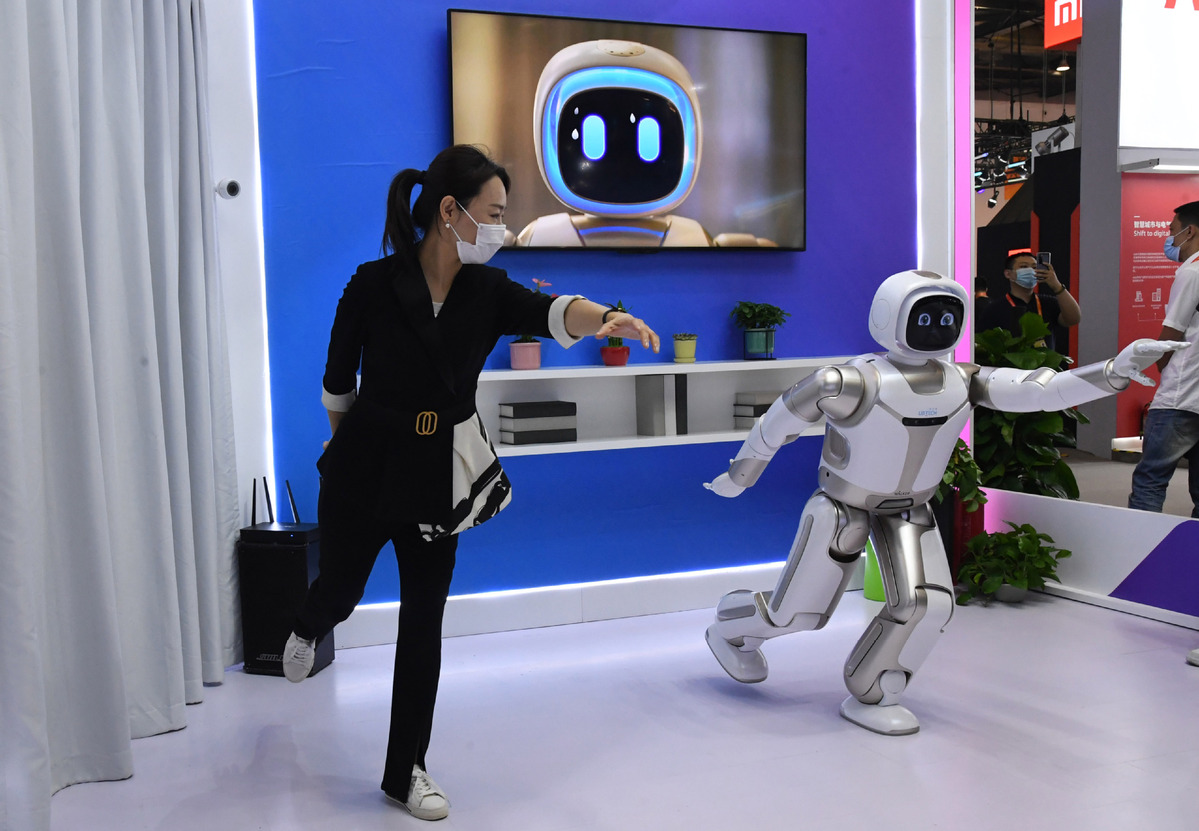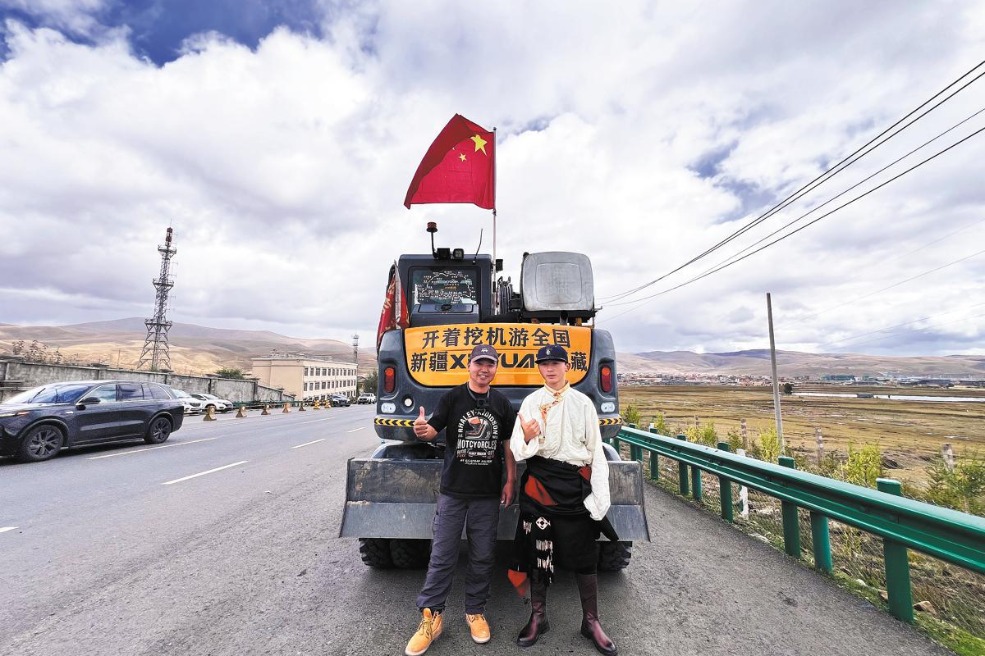Xi's speech sets course to put focus on science


Researchers motivated by president's call for learning, innovative approach
Scientists said President Xi Jinping's speech on China's scientific development on Friday was deeply insightful, inspiring, and instructive. The Chinese scientific community will strive to push the development of basic sciences, train quality talents and create original breakthroughs and innovations to meet the nation's needs.
On Friday, Xi, who is also general secretary of the Communist Party of China Central Committee and chairman of the Central Military Commission, told scientists at a symposium that China should deepen reforms to unleash the full potential of technological innovation.
He also called for Chinese scientists to create original breakthroughs in basic research, train highly inquisitive and capable young talents, strengthen international cooperation, and make new innovations that can meet the needs of the nation and its people.

On Sunday, Bai Chunli, president of the Chinese Academy of Sciences, asked the freshmen and graduate students attending the opening ceremony for the 2020 academic year at the University of the Chinese Academy of Sciences, "Who can the nation turn to when it has questions and difficulties?"
Over 9,000 students replied in unison: "We, the generation for a vigorous nation." Bai said science knows no borders, but scientists have nationalities, "all of us should have a patriotic heart and try to contribute more to our people and country, as well as our families who nurtured us."
He urged the students to answer the call of duty highlighted in President Xi's speeches and to be highly self-disciplined and self-motivated to learn.
Yang Suiyuan, a biology PhD candidate at UCAS, said his biggest takeaway from President Xi's speech on Friday is how he highlighted that the nation needs more scientific and technological solutions than ever before to promote socioeconomic development and improve people's livelihoods.
"We have a sacred duty to learn from our past role models and carry the weight of the nation by creating more original breakthroughs," he said. "I will never forget our purpose of seeking the truth to serve the people."
Zeng Yi, a professor at the Institute of Automation of the Chinese Academy of Sciences, said to make original breakthroughs, scientists not only need to identify "no-man zones" in research, but also "leave their comfort zones and work extra hard to push the limits of scientific understanding."
Research in key strategic sectors must be meticulously planned ahead and sustained through constant input of talents and resources, he said. Meanwhile, China's scientific development will need to be more open and inclusive, "only then can our scientific community be a strong and popular partner in the global scientific network".
Tang Benzhong, a noted chemist and academician of the CAS, said China needs to create a "culture of science" that encourages innovation, values the scientific spirit and can foster quality talents on par with the nation's requirements.
New schools of thought
"Culture is the soil, and only fertile soil can nurture strong crops," he said, adding that Chinese scientists should strive to forge new schools of thought in their disciplines.
Zhou Zhonghe, a noted paleontologist and academician of the CAS, said President Xi's speech demonstrates the nation's adamant support for basic sciences and recognition of curiosity as the source of innovation in basic research.
"I hope these ideas will soon take root and be implemented well, because they will facilitate the sustainable development of our basic research," he said.
Guo Rui, the director of the center for space agricultural science technology and engineering research in Shaanxi province, said one of the key aspects in promoting scientific development underscored by President Xi is tackling major scientific questions to meet the needs of the nation.
Space agricultural science involves sending seeds to space and so they will be bombarded by cosmic rays in microgravity to induce mutation, which may lead to new and improved plant varieties. For years, Guo has been using this method to breed new tree and grass varieties that can be planted in saline soil to contain the expansion of deserts and repair the ecosystems in China's northern regions.
"The desertification process is extremely complex, and we need to enhance basic research to create new plant varieties that can suit our nation's ecological needs," he said, adding that utilizing space technologies and other advanced sciences may provide new solutions to old problems.
Make breakthroughs
Cheng Gong, a professor of basic medical sciences at the School of Medicine at Tsinghua University, said President Xi's speech is very motivating and has set a course for how the scientific community can contribute to the nation's innovation and scientific development.
"President Xi has mentioned how basic science is an arduous and methodical process-we scientists must be able to push through the monotony and make breakthroughs in key sectors that are limiting our nation's development," he said.
"At the same time, we also need to prioritize nurturing the next generation of scientific talents, and blend innovation and scientific exploration seamlessly into our daily teaching," he said.
Yuan Lanfeng, an associate professor at the National Research Center for Microscale Material Science at the University of Science and Technology of China, said schools should improve education in math, physics, chemistry, biology and other basic sciences at the elementary and middle school level to cultivate a strong interest and curiosity in children for these subjects.
"Education reform tends to cut course load for these subjects because they are more abstract and difficult for young students, but this is detrimental to building a sustainable, quality scientific talent pool," he said.
Yuan advocates an improved science education curriculum that focuses on sharpening the youth's ability to innovate.
Educators should also establish new courses in basic and interdisciplinary sciences for college students and create new means of encouraging promising talents to engage in basic research.
- 'Ice City' warms up for winter Games
- China takes lead in global growth of IP
- Infrastructure restored in aftermath of Dingri earthquake
- Chinese actor located safely after disappearance on Thai-Myanmar border
- Universities open subsidies for students affected by earthquake
- China to improve intellectual property rights





































